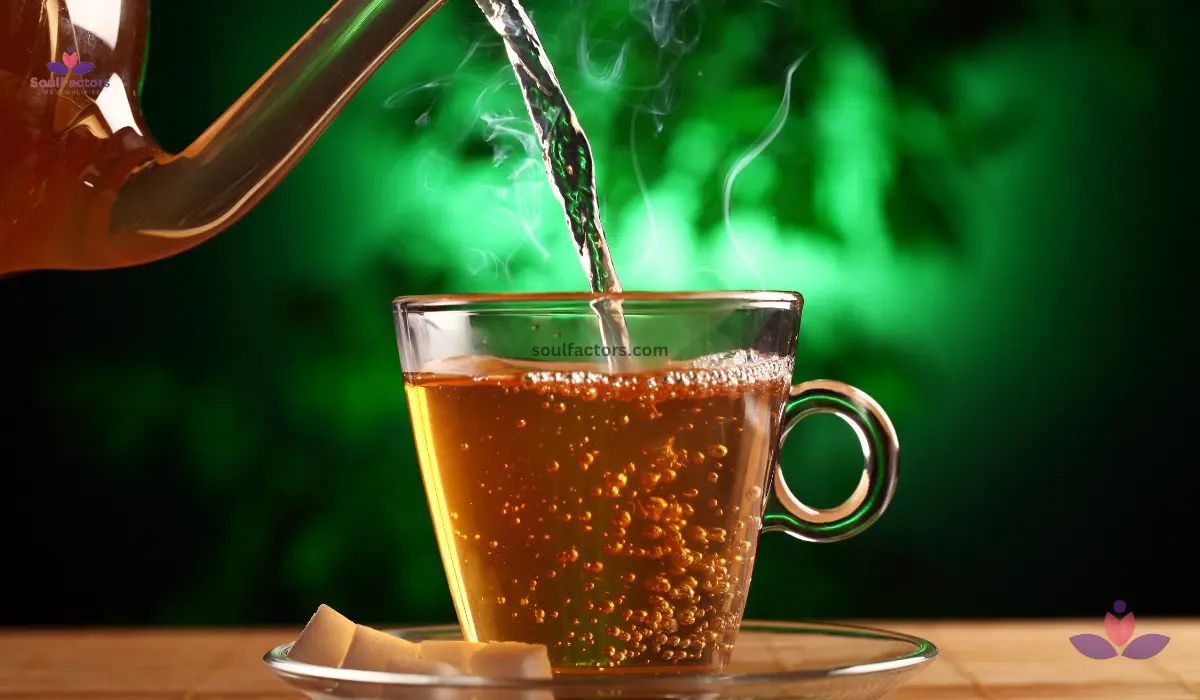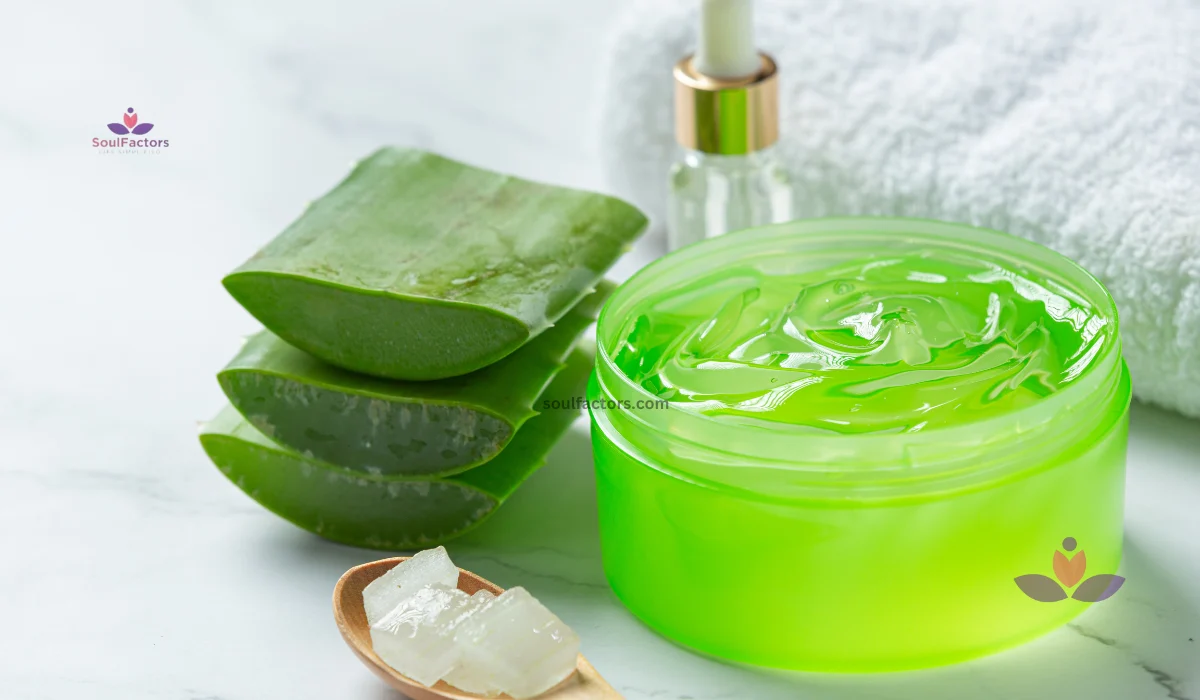Is Tea Acidic? A Comprehensive Look At The pH Levels Of Your Favorite Beverage
Is tea acidic? Depends on what tea you are talking about!
On Mar 20, 2024 – 6 minutes read

Have you ever wondered about the acidity of your daily cup of tea? With so many varieties available, from green tea to black tea and herbal infusions, it’s natural to question how these beverages might affect your health. The topic of acidity in drinks has gained attention recently, especially when comparing tea to acidic coffee. While some people believe that tea is less acidic than coffee, others are concerned about the potential effects of consuming acidic beverages on their well-being.
In this article, we’ll dive deep into the question, “Is tea acidic?” We’ll take a look into the various pH levels of different types of tea. We will also compare them to other popular drinks, and discuss the potential implications for your health. By the end of this article, you’ll have a better understanding of where tea falls on the acidic alkaline scale and how to make informed choices about your daily beverage consumption. So, let’s brew a cup of your favorite tea and embark on this journey to uncover the truth about tea’s acidity
Is Tea Acidic Or Alkaline?

When it comes to the question, “Is tea acidic?” the answer is not a simple yes or no. The acidity of tea depends on various factors, including the type of tea, the brewing method, and even the water used. To understand the acidity of tea, we first need to grasp the concept of pH levels.
pH is a scale that is used to measure the acidity or alkalinity of a substance. The scale ranges from 0 to 14. A pH of 7 is considered neutral. Anything below a pH of 7 is considered as acidic. Further, anything above a pH 7 is considered alkaline. Most teas fall somewhere between 4 and 6 on the pH scale, which means they are mildly acidic. Let’s take a closer look at some popular types of tea and their pH levels.
Is Tea Acidic? Various Cups of Tea and its Acidity
We drink different types of tea every day. The common types of teas we use are,
Black Tea
Black tea is one of the most widely consumed teas worldwide. It typically has a pH range of 4.9 to 5.5, making it slightly more acidic than other teas. However, it’s still less acidic than acidic coffee, which has a pH range of 4.5 to 5.0
Green Tea
Known for its health benefits, green tea is often touted as a more alkaline option compared to other teas. However, is tea acidic when it comes to green tea? The pH of green tea usually falls between 7.0 and 10.0, depending on the specific variety and brewing method. While it’s less acidic than black tea, it’s not entirely alkaline.
Oolong Tea
5.0 and 6.0. Although it’s slightly acidic, oolong tea is still considered less acidic than acidic coffee.
Herbal Teas
Herbal teas, such as chamomile, peppermint, and rooibos, are not technically “true” teas as they don’t come from the Camellia sinensis plant. The acidity of herbal teas varies greatly depending on the ingredients used. For example, chamomile tea has a pH of around 6.0, while peppermint tea is more alkaline with a pH of 7.0 to 8.0. Herbal teas also help to get rid of Sulfur Burps instantly.
Now that we’ve established that most teas are mildly acidic, you might be wondering how this compares to other popular beverages. Let’s find out, shall we?
The Acidity of Other Beverages
Acidic coffee, as mentioned earlier, has a lower pH than most teas, making it more acidic. Soft drinks, such as cola and lemon-lime soda, have an even lower pH, usually around 2.5 to 3.5. On the other hand, water has a neutral pH of 7.0, while milk is slightly acidic with a pH of 6.5 to 6.7.
So, what does this mean for your health? Will consuming acidic beverages pose a risk to your health?
What are the Health Risks of Consuming Acidic Beverages?
Some people worry that consuming acidic beverages like tea might contribute to acid reflux or other digestive issues. However, the acidity of tea alone is unlikely to cause significant problems for most people. In fact, some studies suggest that drinking tea may even help alleviate symptoms of acid reflux by soothing the digestive tract.
That being said, if you have a sensitive stomach or are prone to acid reflux, you may want to pay attention to how your body reacts to different types of tea. Some people find that certain varieties, such as green tea or herbal teas, are easier on their digestive system than black tea or acidic coffee.
Another factor to consider is the potential impact of tea on tooth enamel. While the acidity of tea is generally not high enough to cause immediate damage, regularly consuming acidic beverages can contribute to enamel erosion over time. To minimize this risk, you can try drinking tea through a straw, rinsing your mouth with water after enjoying a cup or waiting at least 30 minutes before brushing your teeth.
It’s also worth noting that the way you brew your tea can affect its acidity. Steeping tea for longer periods or using hotter water can increase the extraction of acidic compounds, resulting in a more acidic cup of tea. If you’re concerned about acidity, you can experiment with shorter steep times or cooler water temperatures to find the right balance for your taste preferences and digestive comfort.
In addition to acidity, it’s important to consider the overall health benefits of tea. Many types of tea, particularly green tea, are rich in antioxidants. Its other beneficial compounds can support cardiovascular health, boost immunity, and even aid in weight management. While the acidity of tea may be a concern for some individuals, the potential health benefits often outweigh the risks for most people.
Conclusion
In conclusion, the question “Is tea acidic?” has a nuanced answer. While most teas are mildly acidic, with pH levels ranging from 4 to 6, the acidity varies depending on the type of tea, brewing method, and other factors. When compared to acidic coffee and other popular beverages, tea generally falls on the lower end of the acidity scale.
For most people, the acidity of tea is unlikely to cause significant health problems. But those with sensitive stomachs or acid reflux may want to pay attention to their body’s reactions and choose teas that are gentler on their digestive system. Additionally, being mindful of brewing methods and taking steps to protect tooth enamel can help minimize any potential negative effects of tea’s acidity.
Ultimately, the decision to drink tea should be based on a combination of factors, including personal taste preferences, health goals, and individual tolerance for acidity. By understanding the pH levels of different teas and making informed choices, you can enjoy the many benefits of this beloved beverage while minimizing any potential drawbacks.
So, the next time you sit down to enjoy a comforting cup of tea, consider the acidity level and how it fits into your overall health and wellness plan. And now, we’d love to hear from you: what’s your favorite type of tea, and have you ever considered its acidity? Share your experiences with us in the comments below.

Subscribe to Newsletter
Elevate your routine, stay on trend, and embrace a personalized beauty journey with our curated insights.





Write a Comment